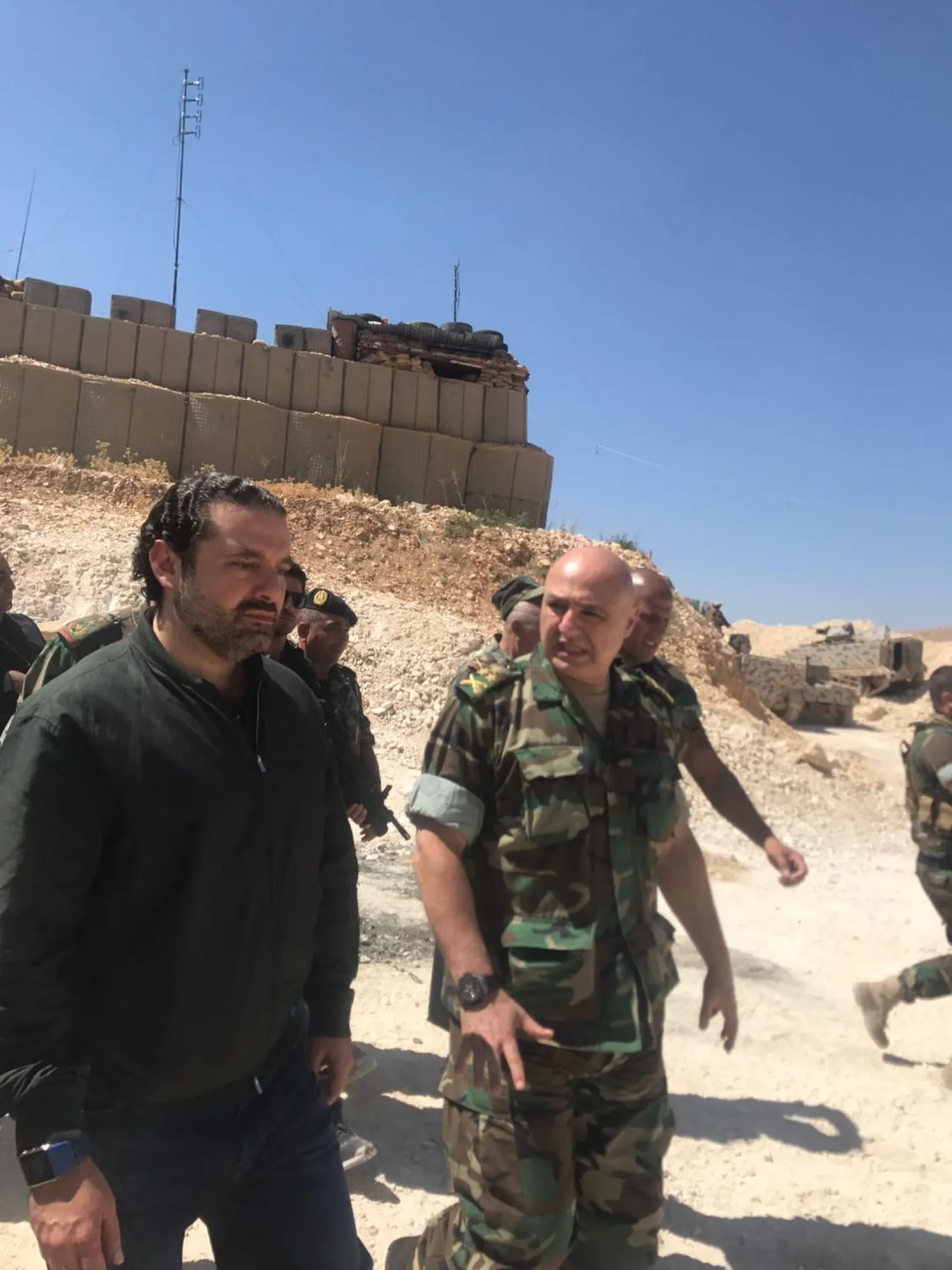Prime Minister Saad Hariri on Wednesday inspected along with Army Commander General Joseph Aoun Lebanese army units in the areas that were liberated from ISIS in the Jroud Dawn operation.
Hariri’s visit to Ras Baalbek was highly significant, military sources told Ashraq Al-Awsat.
His visit gives the military an unlimited support in its war on terrorism, the sources said.
Speaking during his meeting with the army chief, Hariri said: “The whole government stands behind the heroic army.”
“I stress that all Lebanon, the president, the speaker, the government, the ministers, the MPs and all the Lebanese, stand with the army and appreciate what it is doing and hopefully victory is near.”
Hariri addressed the military: “You decide the date of this victory because you know when the operation should end. I thank each and every soldier carrying out their duties in this battle and all over the Lebanese territories. You are protecting the borders through which the terrorists are trying to sneak into the country.”
In response to a question about the fate of the soldiers abducted by ISIS militants in 2014, Hariri said: “We, the army command and the military apparatus consider the issue of the abductees a priority. We will not hide any information that we have, but this requires us to work silently on this issue just as the army did.”
Asked about Hezbollah’s operation alongside Syrian forces on the other side of the border, the PM said: “We don’t say anything about Hezbollah's participation on the Syrian side because we don’t have a say in this; what concerns us is that the Lebanese army is responsible of the Lebanese borders and protecting them.”
Hariri and the army commander later visited Arsal where he said: “The army is fighting battles and exerting great effort and we should be thankful for the soldiers who are fighting for the interest and security of Lebanon. It is our duty to support the army because it is doing its duty in protecting the Lebanese borders, and our duty as state and government is to provide the military with all the capabilities to preserve the security and sovereignty of all the territories.”
Meanwhile, the Lebanese army began redeploying in anticipation of the fourth and final phase of its offensive on ISIS.
The army has so far liberated 100 square kilometers of land previously controlled by the terrorist group. Some 20 square kilometers on the outskirts of Ras Baalbek separate the army from total victory.









